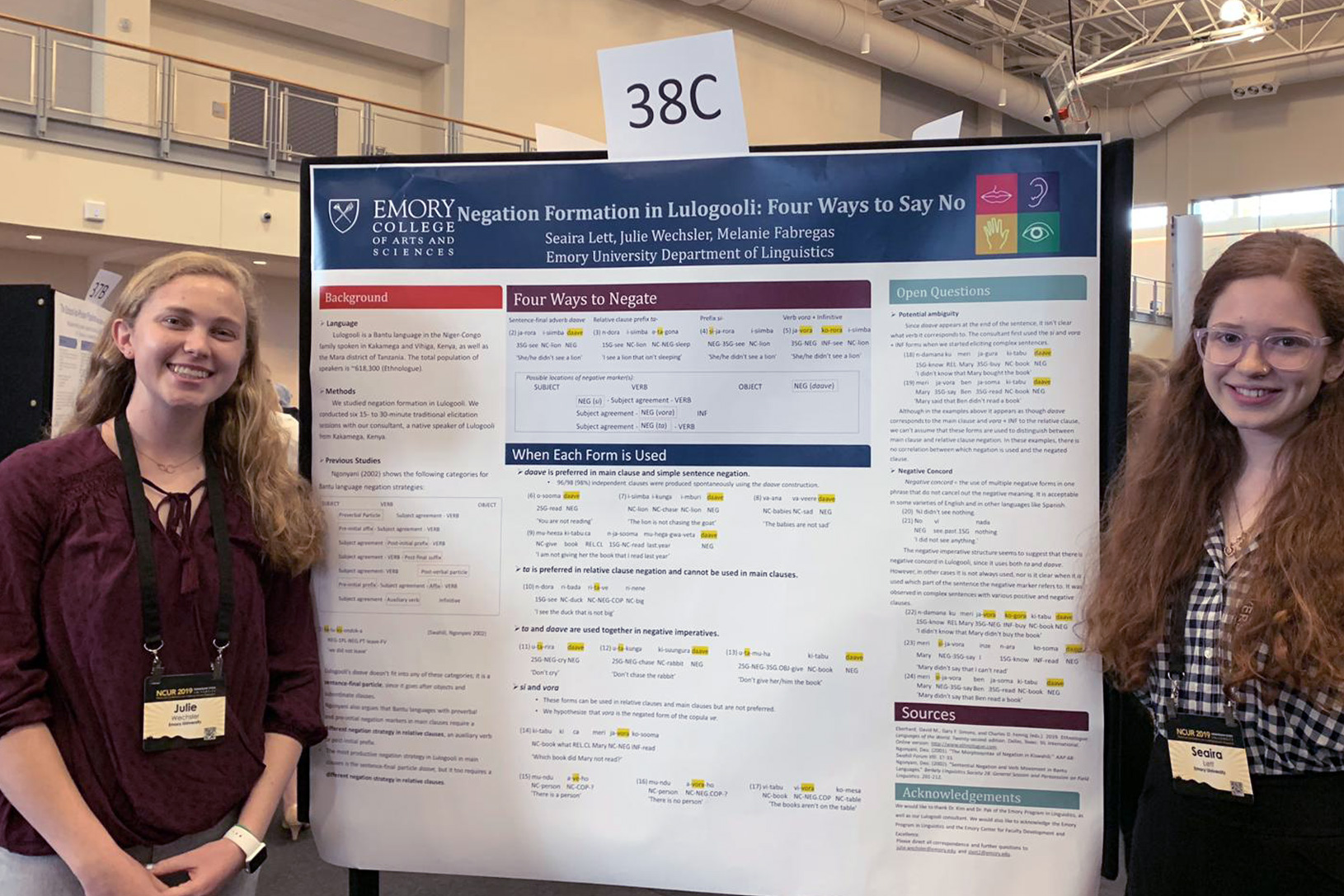Linguistics

Linguistics is the scientific study of language. In the Linguistics Program at Emory, you'll examine everything from sentence structure to sounds to the nuanced meanings of words.
Our interdisciplinary approach allows you to explore a wide range of languages—even computer languages—to understand how language is acquired; how it evolves; and the impact of physiological, cognitive, societal, and cultural differences on communication.
Outcomes
Because language and communication is critical to every endeavor, the study of linguistics provides a foundation that is helpful for any career path. You’ll find linguists working in every sector, from academic and governmental to corporate and nonprofit. And they frequently go into specialized areas such as finance, healthcare, science, and law.
Recent graduates work at TransPerfect Translations, Greenberg Taurig, Myrick Marketing, Lutheran Services of Georgia, PwC China, Impact America, and Hillel International.
They have also gone on to pursue advanced degrees at such prestigious institutions as the University of California –Santa Barbara, Massachusetts General Hospital Institute of Health Professions, University of St. Andrews, University of Pennsylvania, and the University of Georgia.
Examples of Classes at Oxford
Example of Major Classes
Topics in Sociolinguistic
In this overview course, you’ll explore how language changes due to social, geographic, historic, and situational variables.
Language Acquisition
Understanding how we acquire language is crucial to understanding human behavior. In this course, which raises issues in both linguistics and psychology, you’ll examine how our brains are organized to process information and how language affects socialization, communication, and culture.
Language, Mind & Society
Is language a product of how the mind works or of social interaction? In this course, you’ll use these two opposing views as context for examining the structure and limitations of language.
Research in Linguistics

Exploring little-known languages
There are only around 600,000 people who speak the Lulogooli language. Students in Field Methods in Linguistics class designed and conducted research to bring light to the mechanisms of this understudied language. Julie Wechsler 21C, psychology and linguistics major, received a Conference Grant to present their findings at the national Conference on Undergraduate Research.
What happens in language is a complicated dynamic between the word, the listener, and the speaker.